|
Lynne Ingram MB, Somerset's AHAT coordinator, joint events officer and Zoom pilot is lecturing at the BBKA's online Spring Convention.
Her talk, Know your enemy: Facing the Asian Hornet threat, takes place at 11.45 am on Sunday, April 18. Afterwards she will join Dr Pete Kennedy from Exeter University, who is speaking in the slot before on Asian hornets: A brief overview and new insights, and answer questions live. Lynne has been keeping bees for over 30 years, and currently manages 20 colonies in three apiaries. She has been involved in tracking hornets in Jersey and was a contributor to ‘The Asian Hornet Handbook’ by Sarah Bunker. For tickets and more information about the event, which runs from April 15-18, visit the website.  In spring, as temperatures rise, Asian hornet queens (Vespa velutina nigrithorax) emerge from hibernation. Monitoring now may identify any queens which have overwintered in the UK. Lynne Ingram, MB and Somerset BKA’s AHAT coordinator, recommends the use of monitoring stations rather than killing traps. She says: “This allows us to get the evidence of Asian hornets that we need, without killing our native beneficial insects, in particular European hornets.” At this time of year Asian hornet queens will be searching for sugary foods to build up their energy rather than preying on honey bees. So, all monitoring stations should be positioned where you can easily see them and check them daily - eg outside the kitchen window, or in a sunny spot in your garden. All beneficial insects should be released from monitoring stations daily. From mid-May Asian hornet queens will be mainly in their nests and so monitoring stations can be removed. We suggest the adaptation of Thorne’s traps to include wick stations inside to allow wasps and small flies to escape. Liquid bait - get Suterra (now sold as Trappit wasp attractant) from your AHAT Team leader or buy online. If you can't get it due to current restrictions try one of these French recipes:
If you think you have seen an Asian Hornet:
Jersey is using a modification to the origin design to allow beneficial insects to escape. The wick pot prevents all but the smallest insects from entering from the side. They still require daily monitoring. The trap:
Cut the sample pot to half its height ie 3.5cm and fit the lower section through the top section base first. Place a small block of wood or similar over the top of the pot and tap the two parts together. That way you retain the screw top and the modified pot fits snuggly into the trap. Drill a 12mm hole in the lid to take the wick which is made from paper towelling/Jeyes cloth etc. Fill with your liquid bait. The wick pot prevents all but the smallest insects from getting down the side, and the liquid bait doesn’t evaporate so quickly. The holes in the trap allow beneficial insects to escape. Please monitor regularly. For more information check out our Asian hornet page. And here for resources. 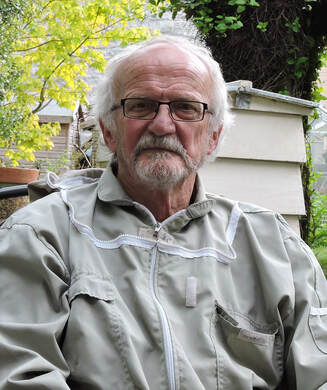 The Chairman of Somerset Beekeepers’ Association, Stewart Gould, is urging beekeepers to keep local honey bees and reject a campaign to overturn the recent ban on bee imports.“Locally bred bees are perfectly adapted for the conditions; imported bees carry the risk of pests and diseases and are genetically better suited to the country of origin,” he said. His comments follow media coverage of the new Brexit rules which have stopped the importation of honey bee colonies directly into the UK from the EU although queen bees are still allowed. HMRC is aware that there may be attempts to get around the import rules by using Northern Ireland as a back door but anti-avoidance measures are in place. “The importation ban is important and avoids the risk of bringing new problems to the UK’s bees. For example, bees in many areas of the country suffer from Chronic Bee Paralysis Virus which is associated with the importation of bees. And we are worried that the small hive beetle, which is in southern Italy, could come into the country and decimate our bees.” Somerset Beekeepers’ Association runs courses to help members to rear their own queen bees from successful colonies which ensures they are adapted to the conditions in their own area. Patrick Murfet from a beekeeping equipment company in Kent has started a petition calling on the government to reverse the new rules. That petition can be found here Petition to overturn the ban In the interest of even handedness, you should be aware that there is a petition to uphold the ban, which can be found here Petition to uphold the banning of bee imports The number of beekeepers and bee colonies continues to rise in the UK; membership of the British Beekeepers’ Association stands at more than 28,000 while Somerset’s is topping a record 1,200. Stewart Gould, Chairman The news this week that Defra has granted a derogation for farmers to use the neonicotinoid thiamethoxam on sugar beet in 2021 has caused uproar amongst many beekeepers and environmentalists.
Somerset BKA Chairman Stewart Gould told the local news: “We know that the intended derogation of neonicotinoid use is for a limited period and is to be used on sugar beet seed, a plant which is harvested before it flowers, and one that doesn’t attract bees, but systemic neonicotinoids, thiomethoxam in this case, are not selective, and are poisonous to all insects, threatening bees and all other pollinators in particular. “ One third of food is dependent on insect pollination and in the UK insects pollinate 70 types of crop – strawberries to cabbages. Dave Goulson – Professor of Biology at the University of Sussex, founder of the Bumblebee Conservation Trust and author of bestselling titles including ‘A Sting in the Tale’ – has responded to the news with a blog. https://www.wcl.org.uk/poisoning-the-environment-to-make-ourselves-ill.asp There is also a debate planned for Tuesday, 19 January https://www.wildlifetrusts.org/events/wild_live_bee-pesticides The lock down series of webinar lectures was originally envisaged as live and interactive - bringing beekeepers together to watch speakers giving practical tips or discussing their research in the field of apiculture.
However, we’ve received so many requests to view recordings that we have started to upload those that we have to the members-only section of this website (click here to go there). But note that these recordings are literally as-live – technical difficulties/clap for carers/tea breaks and all. Not all speakers give us permission to record their talks and for some the technical issues are just too distracting. To date we have Eleanor and Rosemary Burgess talking about swarming and David Evans about rational varroa control. Over time we plan to add to this library and hope you can take a look if you miss a lecture or want to revisit one. Somerset BKA has awarded its most prestigious honour to Fred Horne from Yeovil Division.
The West Country Honey Farms Award is presented annually to the Somerset member judged by a panel of three previous winners to have made the greatest contribution to beekeeping in the county. Up until now the award has been presented at the AGM but Fred is having to make-do with a photo of the trophy until COVID-19 restrictions are lifted. Fred, who first opened a hive in 1952, is a former Vice Chairman of Somerset BKA (1985-86), served as Chairman (1987-1989), is a Vice President (elected in 1990) and an Honorary Member since 2010. He has been an active member of Yeovil Division since he joined in 1976 (when it was known as the Southern Division). Within two years he became Treasurer, holding the post for three years before taking on the role of Secretary for a further seven years. He has been a valued and loyal member of his Divisional Committee for almost the entire period of his membership. His most recent office was that of Divisional President (1999-2017). In the citation for nomination it says: “For all the current membership Fred has always been there. Modest in mind and the epitome of a skillful mentor, Fred offers a master class example of how to communicate. Good mentors, like good teachers, are rare to find but he certainly fits the category well. His empirical knowledge of bees, inspires, encourages and motivates. Not one for gaining qualifications and post nominals, Fred made you think logically, rationally and reminded us that bees are doing what they want to do (usually for good reason) and that we need sometimes to just watch and listen and sometimes leave them to it. Fred, like some other rare individuals, has clearly mastered the art of communicating during his career as a teacher and is able to effectively impart his knowledge at a level commensurate to both the individual and the complexity of the question. “Many of the Division's new members now realise the value of having Fred as their mentor and have appreciated the knowledge and passion that he has been able to transfer. Many inexperienced beekeepers have learned much, and more importantly, limited the potential damage that could have been done to their precious bees by seeking his counsil. By having this sound knowledge base available, either in person, or at the end of a telephone, their beekeeping has improved considerably. “To quote a relatively new member: "It has been a privilege to know and seek the President's advice at times when apiculture was proving demanding and each and every time his wise and thoughtful words made sense and clarified the mire. The value and importance of a skilled mentor should never be underestimated". “Fred stopped keeping his own bees a few years ago and has now stepped down as Divisional President. However, he has not really retired as he is still available to provide advice to the less knowledgeable and experienced members of the Division.” South West Asian hornet action teams are launching an Asian Hornet Spring Watch publicity campaign over Easter. They are calling on the public to get involved.
Somerset’s AHAT coordinator Lynne Ingram said: “Lockdown means that people will be spending more time in their gardens and on walks around their neighbourhood this Easter. “We would like people to look for Asian hornets on flowers such as camellias, trees that ooze sap and in sheltered spots like sheds and porches while keeping within government guidelines in relation to Covid-19.” Asian hornets have distinctive orange faces and yellow tipped legs and are smaller than the bright yellow striped European hornet. “If anyone sees an insect they think is an Asian hornet, check it out on the Asian Hornet Watch app which has an identification guide and lets you send in your sightings.” Beekeepers and conservationists hope to mobilise support from all over the region to prevent the destructive insects getting established in the UK where they will decimate populations of pollinating insects and honeybees. “Given the many pressures on our precious pollinators, including climate change, habitat destruction and pesticide use, it’s vital we do all we can to support them by reporting sightings.” Somerset Beekeepers’ Association has many useful ID materials on its website including a children’s colouring-in sheet. https://www.somersetbeekeepers.org.uk/resources.html Asian hornets are a notifiable invasive species and should be reported immediately, preferably with a photo using:
Ends Notes to editors: Asian hornets (Vespa velutina nigrithorax) are slightly smaller than native European hornets and look like large black wasps with an orange face and yellow legs:
A single Asian hornet can kill 50 bees a day, with a nest containing up to 6,000 workers and up to 350 queens. In Jersey, France and large areas of Western Europe they are stripping the environment bare of insects before moving on to prey on managed honeybee colonies. Asian hornets are a notifiable invasive species and should be reported immediately with photo using:
Somerset BKA's Asian hornet action team co-ordinator Lynne Ingram is urging us all to start monitoring for Asian hornets:
"We're approaching the time when Asian hornet queens will be emerging from hibernation – when the temperature is consistently reaching 13 deg C – and so we need to be monitoring for their presence. We don’t know if there are any Asian hornet queens over-wintering in the UK this year, or whether any mated queens will make their way into the UK post-hibernation. But we need to be prepared. Monitoring traps We strongly recommend the use of monitoring stations, rather than killing traps. This allows us to get the evidence of Asian hornets that we need, without killing our native beneficial insects, in particular European hornets. Asian hornet queens will be searching for sugary foods to build up their energy, not preying on your bees. This means that all monitoring stations need to be positioned where you cannot help but see them and where you can easily check them daily - e.g. outside the kitchen window, or in a sunny spot in your garden. All beneficial insects must be released from monitoring stations daily. From mid-May Asian hornet queens will be mainly in their nests and so monitoring stations can be removed. We are recommending the adaptation of Thorne's traps to include the wick stations inside. This allows wasps and small flies to escape. (See photos above). Liquid bait Use Suterra (now sold as Trappit wasp attractant). Get this from your AHAT Team leader if restrictions allow (keep yourself and others safe and comply with government guidelines) or buy online (Pestfix.co.uk sells smaller bottles). If you cannot get it due to current restrictions try one of these French recipes: • Dark beer mixed with 25ml strawberry dessert sauce and 25ml orange liqueur • 350ml sweet white wine (or white wine sweetened with sugar) + 20-30ml mint syrup Please also observe any flowers where Asian hornet queens may be feeding. Any trees that may be oozing sap are also very attractive to queens in Spring. Being confined to our homes at the moment gives us the ideal opportunity to spend time monitoring for Asian hornets. Summer From the August onwards, Asian hornet workers may be found preying on your bees, so monitoring stations may also be hung in your apiaries. Again, we need to be monitoring regularly so that we protect our beneficial insects, and so that we have live samples that could be tracked if necessary. Please register your monitoring stations in apiaries on BeeBase. What to use • Monitoring stations as above • Open bait stations – plastic tray with screwed up kitchen roll, a stone and your liquid bait. Ideally protect these from rain - on a bird table Autumn In the Autumn Asian hornet workers can be observed on fallen and growing fruit and on ivy plants, where they will often be seen taking prey. Males and new queens will be produced in the late Autumn and males can be seen feeding on flowers. This is a crucial time to spot Asian Hornets as it is important to find any nests before the queens emerge and go into hibernation. Observe plants, fruit and also around your apiary. If you think you have seen an Asian Hornet: • Get a photo (or sample) • If you are not sure or are struggling to get evidence contact your local Asian Hornet Action Team – [email protected] • If you are sure and you have evidence, then report on the Asian Hornet Watch App or on [email protected] – and to your local AHAT. Due to current restrictions please make sure that you keep yourself safe and comply with government guidelines. Check BBKA website for updates on how this relates to beekeepers." Three hives complete with bees and their hive stands were stolen from Pat Rich’s apiary near Chilcompton sometime between March 1 and March 20. They were taken from a fenced and gated (locked) apiary out of sight of the road from within a field which itself was fenced and securely gated.
The hives are nationals in red cedar and each had a small circular metal disk marked ‘Wansdyke Precision Engineering’. These will probably have been removed but may have left behind a small darker or lighter circle. If anyone is offered hives similar to this, we’d be grateful if you could let me (07555 966 964) or Pat know at [email protected] Thank you Mark Hitchens, Secretary, Mendip Division. Image copyright: Véto-pharma Dorset beekeeper Chris Slade is blogging about Lecture Day and declares that in spite of a long journey through Storm Dennis "It was worth it though and I’m glad I went."
Read all about it here: https://chrissladesbeeblog.wordpress.com/ We hope all who attended enjoyed the day and look forward to evaluating the online survey feedback. |
Archives
March 2024
Categories
All
|
Somerset Beekeepers Association Charity © 2021 Registered CIO Charity 1206483
Affiliated to the British Beekeepers Association
Click here to view our Privacy Policy
Affiliated to the British Beekeepers Association
Click here to view our Privacy Policy
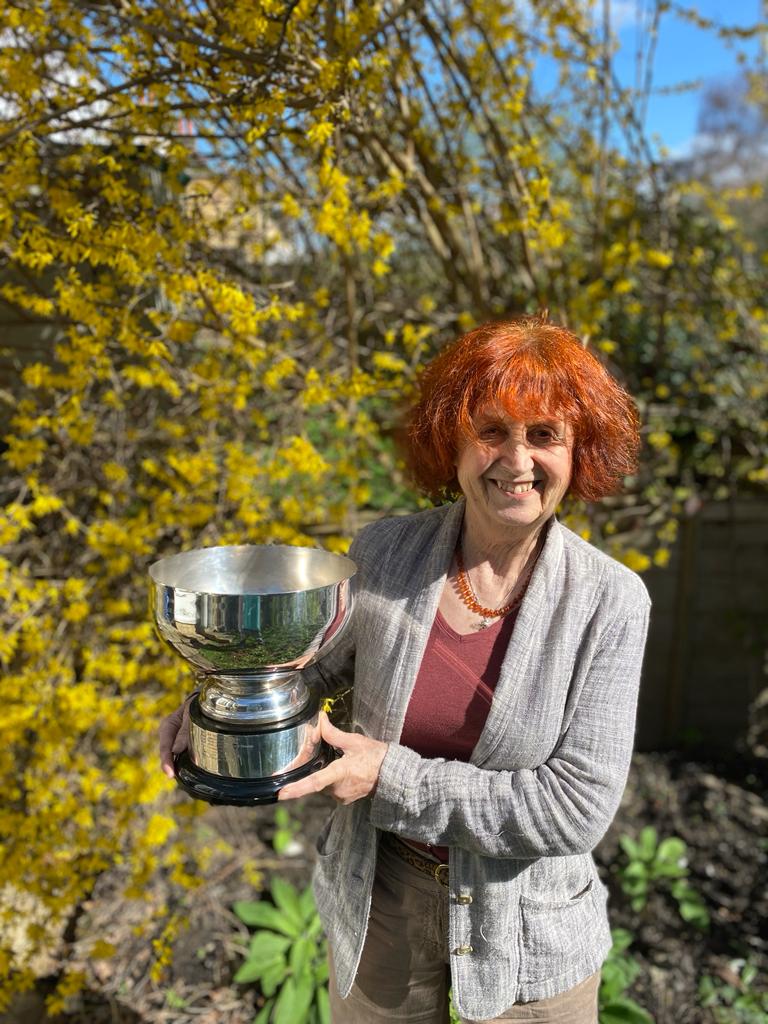
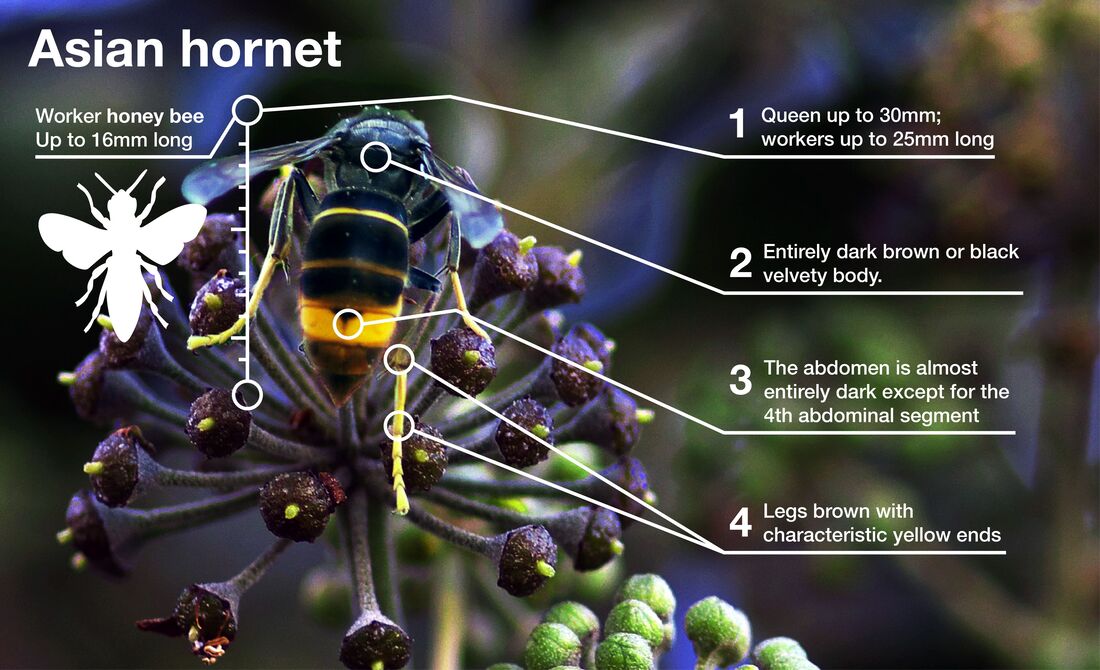
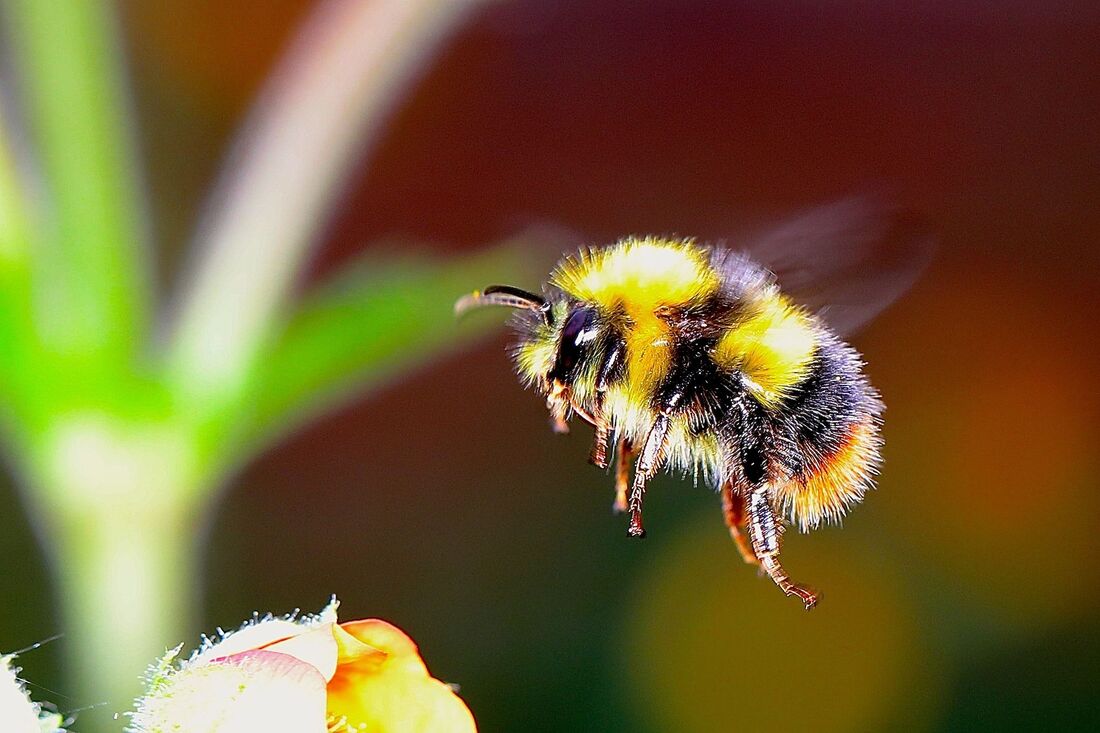

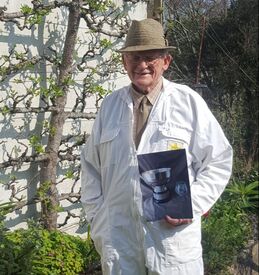
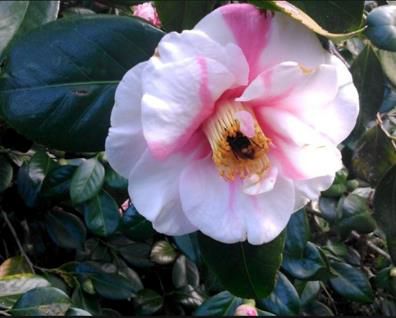

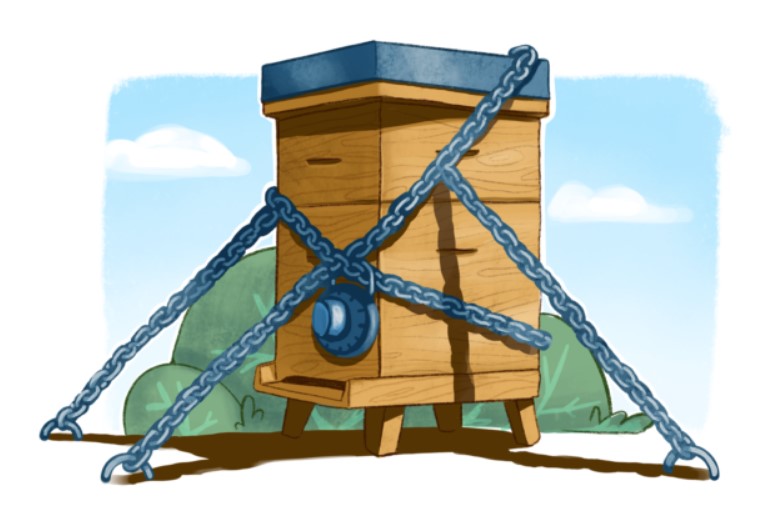
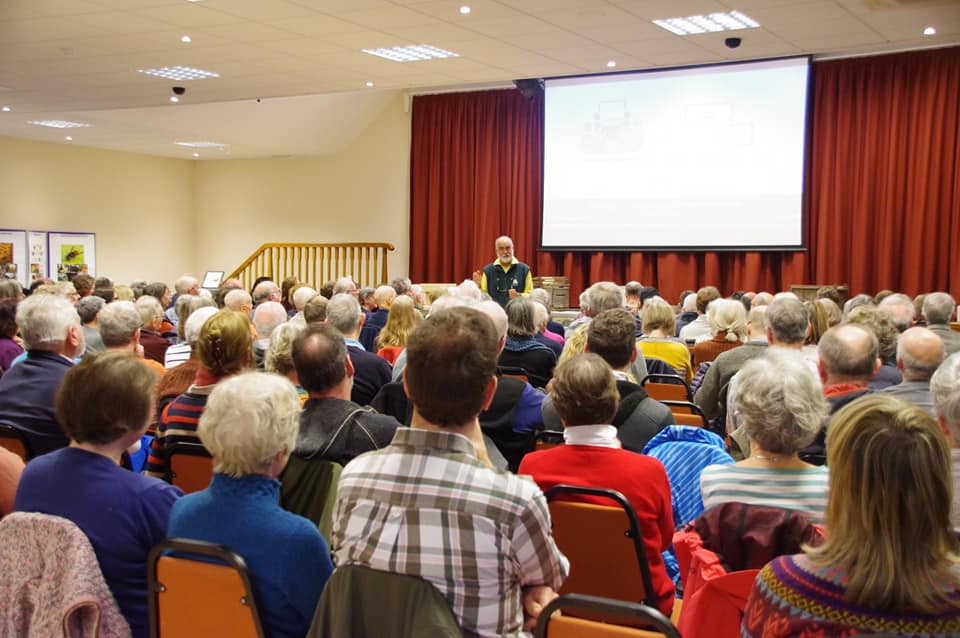
 RSS Feed
RSS Feed
